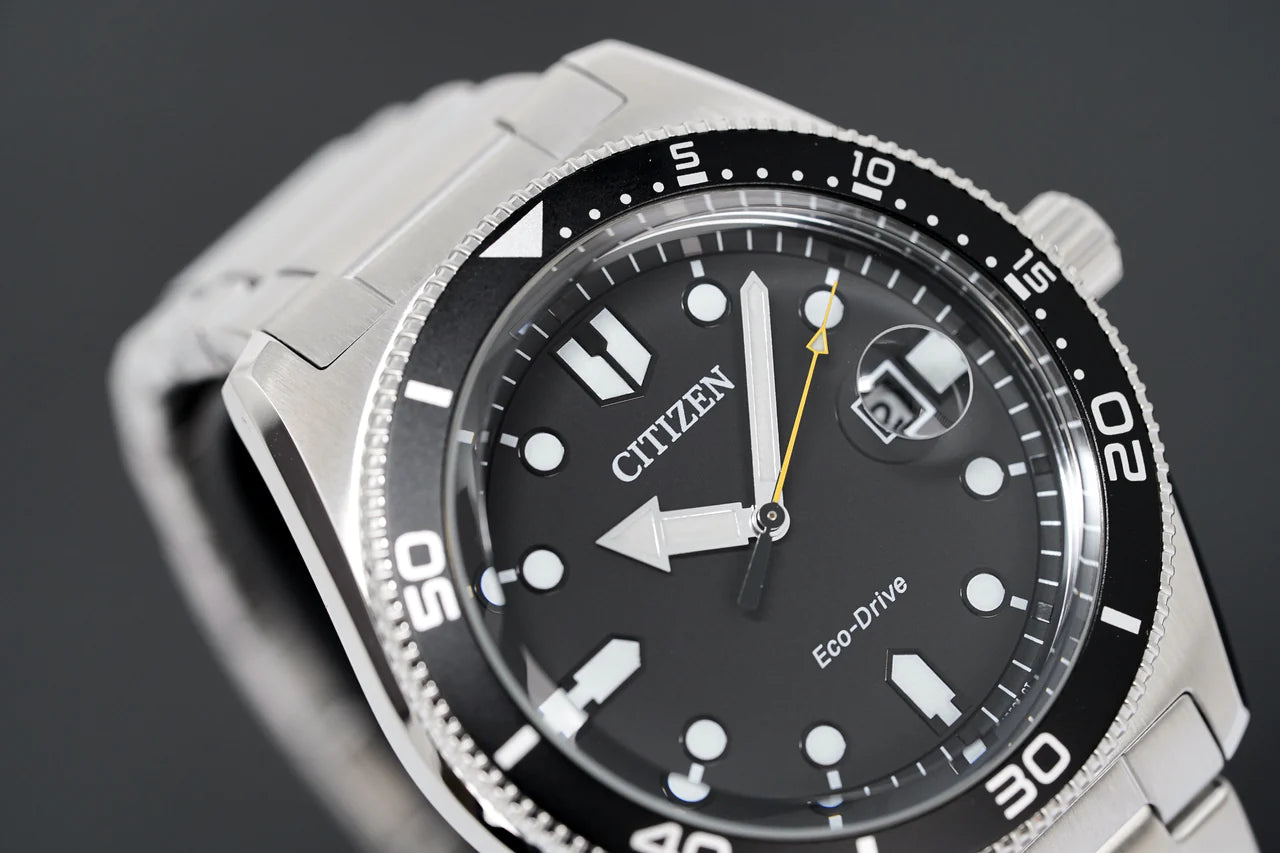With only a small crystal, a battery and a series of tiny motors, quartz technology initiated a new age of timekeeping accuracy that put many prominent watchmakers out of business. So, how did this technology cause so much upheaval?
If you’re interested in purchasing a quartz movement watch, here is all you need to know about what they are, how they came to be and their benefits.
What is A Quartz Watch?
A quartz watch is a timepiece that uses quartz crystal, a battery and an electronic oscillator. It’s an entirely different system from a mechanical or automatic watch and is deemed one of the most accurate.
Quartz Movement Meaning
A quartz movement is when the second hand ‘ticks’ by one second, pauses, and then ticks the next second. The quartz crystal and battery powers this process.
Popular Quartz Watches
Seiko released the first official quartz watch, the Astron, in 1969, which initiated a quartz revolution.
While the Swiss watchmaking industry giants doubled down on their traditional mechanical watches, much of the world’s watch production shifted to companies that embraced the newest electronic technology, such as Seiko, Casio and Citizen.
Thanks to technological evolution and mass production, nearly anyone can afford a highly accurate quartz watch. Many brands, including Burberry, Emporio Armani and Tag Heuer, now utilise the quartz movement.
Quartz Movement: How Does a Quartz Watch Work?
The inner workings of a quartz watch are fascinating. Here’s an overview of how watchmakers achieved the exceptional accuracy these watches are known for.
Properties of Quartz
Back in 1880, Jacques and Pierre Curie made a remarkable discovery – that quartz is piezoelectric. When quartz is compressed or bent, it can generate a small electric charge. However, it also works the other way: if a small electric charge is applied to quartz, it will compress or bend. This property meant quartz had an incredibly precise oscillating voltage.
Combining Quartz with an Electrical Charge
In 1928, Warren Morrison discovered that he could keep a quartz crystal oscillating without losing energy by passing an electric charge through it. This invention was a breakthrough. It created an exceptionally precise and efficient oscillator, ideal for powering a watch.
Quartz Watches Today
Quartz is still the most popular mechanism used to power a watch. Combined with a battery, it can oscillate at a precise frequency of 32768 times per second.
The watch’s circuit counts the oscillations and turns each 32768 vibrations into one electric pulse. This pulse drives a motor, turning the hands and giving the quartz watch its signature once-per-second tick.
Types of Quartz Watches
Quartz watches have continued to evolve and develop over time. Here are a few types that you may encounter on the market.
High-Accuracy Quartz (HAQ) Watches:
Quartz watches are already known for their accuracy, with most models guaranteed to be accurate to around 15 seconds per month. However, a type of quartz watch is even more precise: the High Accuracy Quartz (HAQ).
HAQ watches use the same principles as standard quartz movements, but they have the advantage of being thermo-compensated. This means that they can detect temperature changes and adjust themselves accordingly, ensuring accuracy to within 10 seconds per year.
Meca-Quartz Watches:
Meca-quartz is a hybrid movement with two distinct mechanisms working in partnership. In a meca-quartz chronograph, the timekeeping functions are controlled by a quartz movement, while a traditional mechanical module regulates the stopwatch function.
This combination provides the incredible accuracy of quartz with the sleek feel and performance of a mechanical chronograph. Compared to an entirely mechanical chronograph, a meca-quartz watch can be slimmer, more durable and reliable, cheaper to maintain and faster to service.
Benefits of A Quartz Watch
Considering all this, here are a few of the most significant benefits of choosing a quartz watch.
Accuracy:
Quartz's precise oscillating voltage gives it exceptional accuracy, more than even the most pricey and expertly tuned mechanical watches.
Affordability:
Quartz watches are battery-powered and often require less intricate craftsmanship than mechanical timepieces; this is reflected in their price.
Low Maintenance:
Besides an occasional battery replacement every one to two years, quartz watches require much less servicing than their mechanical counterparts.
Durability:
Quartz watches have fewer moving parts than mechanical watches, making them less likely to require repair. A quartz watch can be incredibly robust and keep ticking for a lifetime.
If you’re looking to invest in one of these innovative designs, Watches and Crystals has a massive inventory of Quartz Watches. From classic Casio to ornate Michael Kors – find a quartz movement watch that fits your style.
Need extra assistance? Please contact us for any additional help with your order. We’re always happy to answer any queries about our products.

